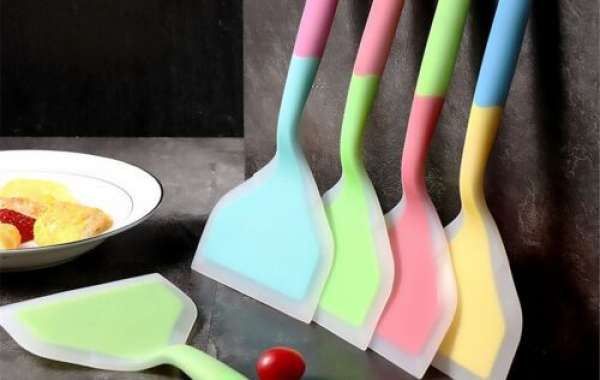When it comes to kitchen tools, silicone spatulas have become a popular choice among home cooks and professional chefs alike. But an important question arises: are silicone spatulas safe? This article delves into the safety of silicone spatulas, their benefits, and how they compare to other materials.
What Are Silicone Spatulas?
Silicone spatulas are kitchen utensils made from silicone, a synthetic rubber that combines flexibility with heat resistance. These tools are favored for their non-stick properties and durability, making them ideal for various cooking and baking tasks.
Benefits of Using Silicone Spatulas
Silicone spatulas offer numerous advantages:
- Heat Resistance: One of the primary benefits of silicone spatulas is their ability to withstand high temperatures. Many can endure heat up to 600°F, making them suitable for cooking tasks involving hot pans or direct heat.
- Non-Stick Surface: The smooth, non-stick surface of silicone prevents food from clinging, ensuring easy cleaning and efficient cooking.
- Durability: Unlike wooden or plastic spatulas, silicone versions do not crack, chip, or degrade over time. They maintain their shape and functionality even after prolonged use.
- Versatility: Silicone spatulas come in various shapes and sizes, catering to different cooking needs, from scraping bowls to flipping pancakes.
Are Silicone Spatulas Safe?
To address the core question, are silicone spatulas safe, we must consider several factors:
Food Safety Standards
Silicone kitchen tools are generally made from food-grade silicone, which is safe for cooking. Food-grade silicone is non-toxic, odorless, and does not leach chemicals into food. It is approved by health authorities such as the FDA and the European Food Safety Authority (EFSA) for use in kitchenware.
Heat Stability
Silicone's high heat resistance ensures that it does not melt or release harmful substances when exposed to high temperatures. This stability makes it a safer alternative to plastic utensils, which can warp or release toxins under heat.
Non-Reactivity
Unlike metal utensils, which can react with acidic foods, silicone is chemically inert. This non-reactive nature means it won't alter the taste or nutritional value of your food.
Potential Concerns and Misconceptions
While silicone spatulas are largely considered safe, some concerns have been raised:
- Quality Variations: Not all silicone spatulas are created equal. Low-quality versions may contain fillers or additives that could compromise safety. It's essential to choose products labeled as 100% food-grade silicone.
- Microwave Use: While silicone is microwave-safe, it’s important to ensure that the spatula does not have any metal parts, which can pose a risk.
How to Ensure Your Silicone Spatulas Are Safe
To maximize the safety of your silicone spatulas, consider the following tips:
- Buy from Reputable Brands: Opt for well-known brands that provide clear labeling about the materials used. Look for certifications indicating food-grade quality.
- Inspect for Damage: Regularly check your silicone spatulas for signs of wear, such as cracks or discoloration, which might indicate the need for replacement.
- Avoid Extreme Temperatures: While silicone can withstand high heat, avoid exposing it to direct flames or broilers, as this could compromise its integrity over time.
Comparing Silicone to Other Materials
Silicone spatulas often come out ahead when compared to other common materials:
- Plastic: Plastic spatulas can release harmful chemicals when heated. Silicone is a safer alternative, as it remains stable at high temperatures.
- Wood: While wooden spatulas are safe and eco-friendly, they are prone to absorbing moisture and developing bacteria. Silicone’s non-porous surface is more hygienic.
- Metal: Metal spatulas are durable and heat-resistant but can scratch non-stick cookware. Silicone provides the benefits of metal without the risk of damage to delicate surfaces.
Conclusion
In conclusion, are silicone spatulas safe? The answer is a resounding yes, provided they are made from high-quality, food-grade silicone. Their heat resistance, non-reactivity, and durability make them a reliable and safe choice for everyday cooking. By following proper care and usage guidelines, you can enjoy the benefits of silicone spatulas for years to come.




